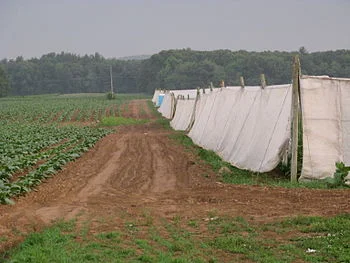
Chris Powell: A sanctuary state for bears
Your suburban neighbor
Nature is and long will remain a great advantage of life in Connecticut. Suburban and rural towns are set in the middle of nature, and the state's small cities are never far away from it. Because of agriculture's decline, the state is more forested than it was a couple of centuries ago, and because state government has amassed so many unfunded liabilities, there won't be much if any economic growth here for decades more. Nature is secure in the state.
But nature is not always benign in Connecticut any more than it is always benign anywhere else. Alligators, deadly snakes and spiders, cougars, and great white sharks are part of nature too and dangerous to civilization. Fortunately Connecticut has few of those but increasingly it has black bears instead.
In the last year in Connecticut bears haven't just knocked down bird feeders. They have broken into houses and injured or killed pets as well as farm animals in their pens. A week ago a bear even attacked a hiker in Southbury.
Bears have been spreading throughout the state from the northwest and have caused consternation even in inner suburbs and cities, prompting environmental police to tranquilize them, tag them, and relocate them to the deep woods.
But soon they come back with their friends and cubs.
So last week the controversy about bear hunting was renewed. Two Republican state senators from the western part of the state, Craig Miner, of Litchfield and Eric Berthel, of Waterbury, called for bear-hunting legislation, perhaps applying only to Litchfield County, where bears seem most numerous, their main point of entry to the state. Animal lovers in the General Assembly and elsewhere promptly renewed their opposition, asserting that bears can be deterred by peaceful methods.
The peaceful deterrence argument is not persuasive, for it concedes a perpetual increase in the bear population and their becoming common everywhere, with Connecticut becoming essentially a "sanctuary state" not just for illegal immigrants but bears as well. Under current policy the state is probably only a few years away from that. Bears are cuter than alligators and Burmese pythons, the bane of South Florida, but there is no good in having such creatures nearby.
A bear-hunting season in Connecticut won't endanger the species but may push bears back toward the north woods, where they belong. It's worth a try.
xxx
Last week Gov. Ned Lamont joined other advocates of the nanny state in celebrating implementation of the new law raising to 21 the age of eligibility for purchasing tobacco products. The rest of Connecticut is supposed to believe that young people don't have older friends to buy them age-restricted contraband.
While the governor and the nanny-staters were celebrating the new tobacco law, Manchester celebrated the inauguration of a 19-year-old member of its Board of Education. The irony of public policy here passed unnoticed -- that the 19-year-old is deemed mature enough to decide how to operate the public schools but not to decide whether to use tobacco or, for that matter, drink alcoholic beverages.
The age of majority will always be arbitrary, a matter of judgment, but to make any sense it has to be consistent. To serve in the military, to vote, and to hold public office at 19 but to be forbidden to purchase tobacco or alcohol is nonsense, but, like so much else in Connecticut, it's the law because it's politically correct nonsense. Mainly it just lets the nanny-staters feel good about themselves.
Chris Powell is a columnist for the Journal Inquirer, in Manchester, Conn.
-END-
Changing face of farming in Nutmeg State
Adapted from Robert Whitcomb's "Digital Diary,'' in GoLocal24.com:
You don’t tend to think of New England as particularly agricultural, especially southern New England. But consider that in heavily urban, suburban and exurban Connecticut, whose rich southwest corner is part of metro New York, agriculture generates up to $4 billiona year in revenue. And the crops are changing: Making wine has become important, as has aquaculture (mostly shellfish) while tobacco, traditional commercial fishing and a logging have declined. (I can remember the vast shade tobacco (for cigars) farms in the Connecticut Valley. See the movie Parrish.) And in parts of the state there’s been a resurgence of small-scale farming selling fruit and vegetables, often marketed as “organic’’ (a claim often difficult to verify) sold in season at the sort of roadside stands that I remember used to be along small roads leading to Cape Cod.
With so many big malls and their vast parking lots closing, it’s pleasant to think that some of this space might be profitably put back into agriculture to serve the local market, asmuch of this land was used 200 years ago.
Might climate warming extend the growing season a lot for some crops?
University of Connecticut researchers wrote in a recent report:
“The agricultural industry in Connecticut appears to be restructuring into new market segments where innovation, diversity and economic viability are key. This may be a consequence of external factors such as competition from other regions and countries as well as natural shocks like climate change.’’



